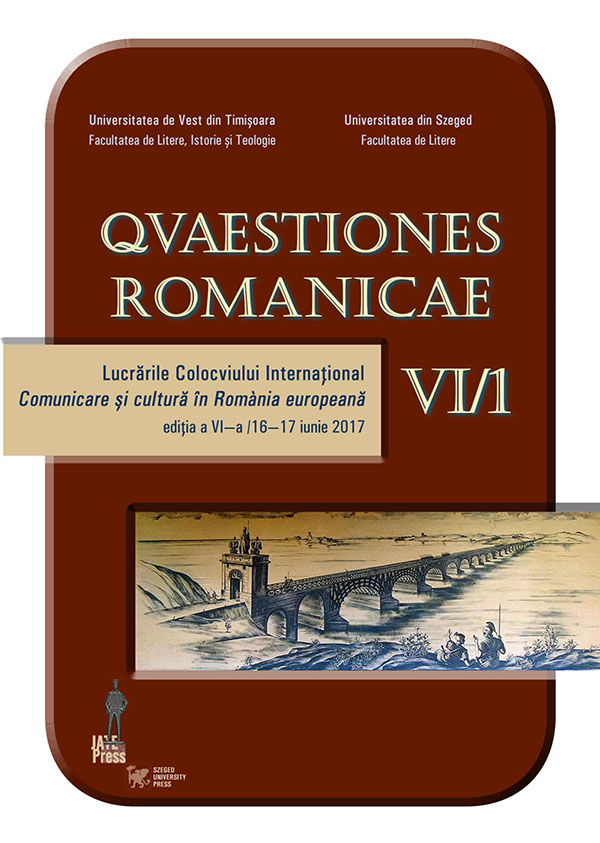Evoluție canonică și poeticitate
Abstract: (Canonical Evolution and Poeticity) Between Dimitrie Gusti’s statement: “The poet does not have to make the metaphore too haughty” and “The poetry is illogical in a sublime way”, belonging to Alexandru Macedonski, we have a whole century of Romanian poetry, which is subordinated to two types of canonical perspectives, the classical-mimetic and the modern-visionary, marked by several significant metatexts and some poetic experiences that demonstrate how the dominant canon is undermined by the stunning emergence of the Eminescianism. The reception and the production of the poetry, based on the metatextual background made by the numerous rhetorics, poetics, stylistics, from which Dimitrie Gusti’s Rhetorics for the Studious Youngs stands out, and with classical insertions in the Maiorescian thinking about poetry, attest to the way of the establishing of the classical poetic canon specific to the nineteenth century, from which Mihai Eminescu, on the one hand, and Alexandru Macedonski, on the other hand, founded, by poetry and by relevant texts at Macedonski, the modernist canon, promoting the first conflictual perspective in the history of the Romanian poetry.
Keywords: Eminescu, Conachi, Gusti, Macedonski, classical-mimetic canon, modern-visionary canon, metatext, text.
Rezumat: Între afirmaţia lui Dimitrie Gusti: „[...] Este de luat aminte a nu face (stihurgicul, n.n.) metafora pre sumeaţă” şi „Poezia este nelogică într-un mod sublim”, aparţinând lui Alexandru Macedonski, avem un întreg secol de poezie românească, ce se subordonează la două tipuri de perspective canonice, cea clasicizant-mimetică şi cea modernă, vizionară, jalonată de câteva metatexte semnificative şi de câteva experienţe poetice care demonstrează modul în care canonul dominant este subminat de tulburătoarea apariţie a eminescianismului. Receptarea şi producerea poeziei, pe fundalul metatextual realizat de numeroasele retorici, poetici, stilistici, din care se remarcă Retorică pentru tinerimea studioasă a lui Dimitrie Gusti, şi cu inserţii clasicizante în gândirea maioresciană despre poezie, atestă modul de instituire a canonului poetic clasicizant specific secolului al XIX-lea, din care Mihai Eminescu, pe de o parte, şi Alexandru Macedonski, pe de altă parte, îşi fundamentează, prin poezie, dar şi prin texte revelatoare la Macedonski, cele două „feţe” ale canonul modernist, promovând prima perspectivă conflictuală din istoria poeziei româneşti.
Cuvinte-cheie: Eminescu, Conachi, Gusti, Macedonski, canon clasicizant mimetic, canon modernvizionar, metatext, text.
